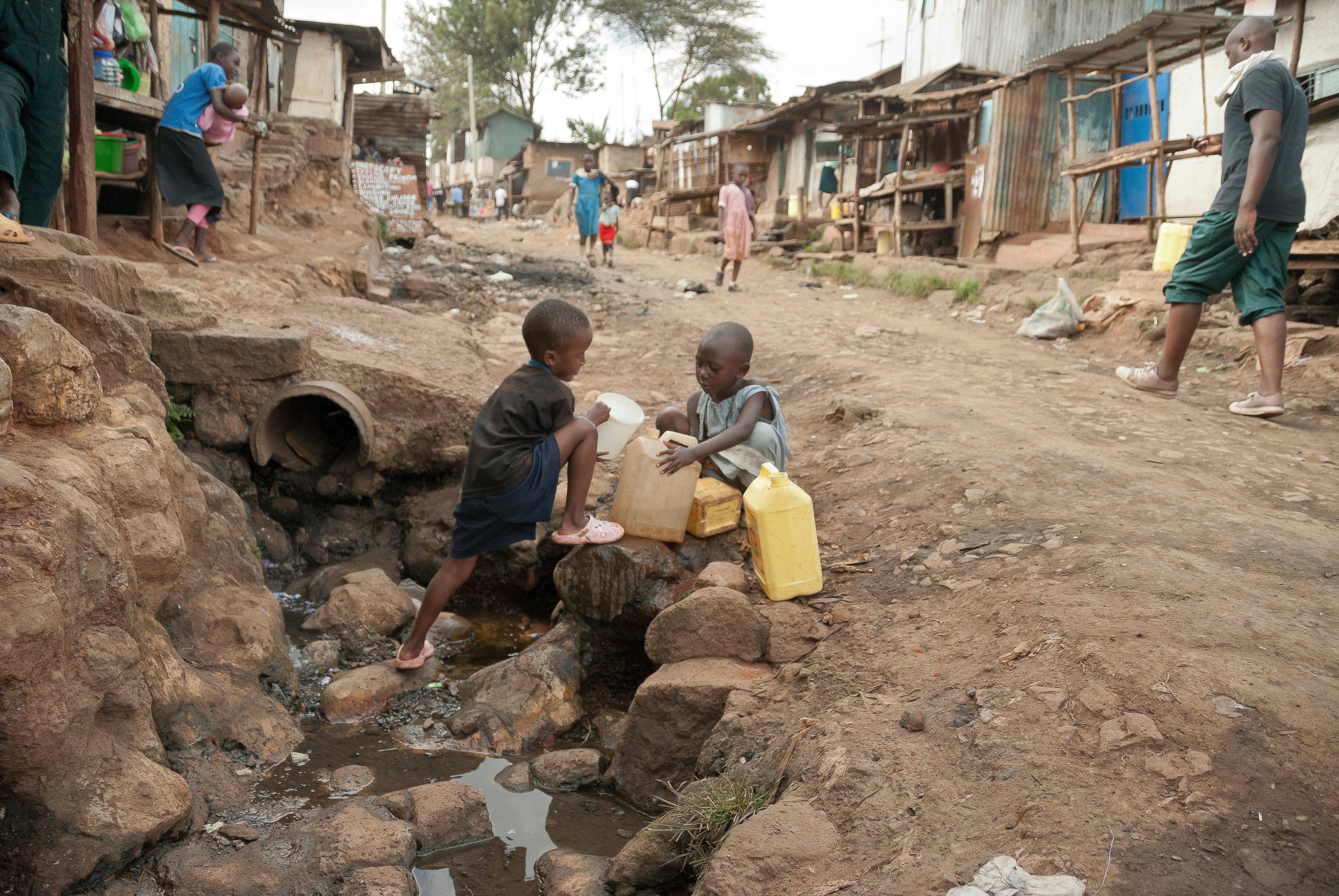How do we end extreme poverty? The answer’s almost laughably obvious…
Guess how you can help people living on less than £1.73 a day? The answer, says Rory Stewart, lies in an “unthinkable” new strategy — handing out cash


As leaders gather this week for the UN General Assembly, they face the most profound failure. The world promised to eradicate extreme poverty by 2030: the UN’s number one goal for a decade and the focus of billions in spending.
But we will miss the target by a huge margin. This shouldn’t have happened, and we can do something about it.
Poverty can mean many things, but extreme poverty has a specific definition: living on less than $2.15 (£1.73) per day. This line, set by the World Bank, is an estimate of what a person needs to afford a basic basket of goods including food, water and shelter. Above it you’ll survive, but below it you may not. Eradicating extreme poverty is not a high bar; it’s the lowest.
There are many reasons for extreme poverty. Colonisation stole wealth and resources. Many post-independence leaders have been chaotic or despotic. And while geography is not fate, it has made ocean trade harder, tropical disease worse and climate change deadlier.
Development aid has often been wasteful and inefficient, something I saw first hand, again and again, as a development worker and, later, as the minister responsible for the UK’s development spending. I’d visit clinics without medicines, schools with 180 students per teacher, and sanitation programmes where 90 per cent of the money vanished in “programme design”.
The UN’s 2030 target was based on a steady 50-year decline in global poverty, but much of this was driven by China and Asia. The number of extreme poor in sub-Saharan Africa has risen from 170 million in 1980 to 470 million today. The public assumed things were progressing as telethons and bestsellers pledged that the end of poverty was within reach, while the reality on the ground suggested the opposite was true.
By focusing on global percentages, skewed by the success in China, the aid industry let itself believe its efforts worked better than they did – efforts based on theory rather than evidence. However, a sober look at the evidence reveals a promising path to ending extreme poverty in our lifetime.
Back when the UN was setting its Millennium Development Goals (MDGs), researchers at Harvard and MIT had a suspicion we might know less about development than we thought, so spearheaded the use of randomised controlled trials to measure how well poverty programmes work. They found many made no measurable change.
But one relatively fringe idea did: giving people money.
More than 300 studies and counting show that when given money directly, people in poverty spend it well, making lasting improvements to their health, education, income and self-reliance. Those in need know best what they need. Giving them money lets them choose.
A small sum to us, as little as $500 (£400), is a life-changing amount for someone living on less than $2.15 (£1.73) per day. Further demonstrations have found giving money to many people at once not only benefits them but also their neighbours, as the funds are spent and invested locally.
I was once sceptical of this idea, as you may be now. I assumed the small army of PhDs in the aid ministry must have something that works better than simply giving people cash (such an unimaginative idea!). But on a visit to a demonstration site in Rwanda, I saw the imaginativeness wasn’t ours, but rather the recipients’.
With a relatively small, one-time payment, families could invest in themselves. I saw villages suddenly transform their energy, housing, sanitation and businesses far more quickly and efficiently than any aid programme could achieve.
Rather than bringing solutions from the top down, money helps from the bottom up.
We will not end poverty by giving out cash alone. These communities also need access to markets, healthcare and education to flourish. Yet many in poverty live in proximity to these opportunities, but are simply too poor to access them. By not giving the poorest the agency to invest in themselves, we’re in effect excluding them from the story of development, choosing instead to guess at what they need.
Today, we gather in New York, soberly aware that our schemes for developing the poorest nations have not panned out, yet I feel cautiously hopeful. Hopeful because in cash aid, we have a proven tool to lift people out of poverty. Cautious, because it would require radical humility from wealthy countries to admit they may not know what’s best for the poorest.
But nothing could be more effective than for the wealthier nations to provide far more cash assistance to the extreme poor. It will not only save and transform lives. It will show trust in their knowledge, respect – and dignity.







Join our commenting forum
Join thought-provoking conversations, follow other Independent readers and see their replies
0Comments